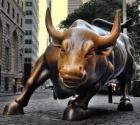The problem with this question is not about spotting the opportunity, is about finding the opportunity in the first place.
Let’s be honest.
If Games Workshop didn’t experience the mammoth rise in their share price, investors wouldn’t have taken much interest.
I doubt anyone was paying attention when it was trading between £4 and £6 per share for a few years.
Reverse Engineering Games Workshop Group
Did many investors see the opportunity presented?
Not many.
If so, then it’s most likely down to luck.
But even if you are certain that Warhammer was going to successful they are unlikely to be people loading up on Games Workshop’s shares
The real question is: “Would you have the conviction to invest in Games Workshop prior to their stellar results?”
The investment case of Games Workshop
Below is a summary of Games Workshop financials:
|
| 2015 | 2016 | 2017 |
| Sales (£m) | 119 | 118 | 158.1 |
| Op. profit >#/span### | 13.9 | 14.3 | 24.2 |
| ROCE | 23.5 | 24.9 | 47.7 |
| Capital Employed (£m) | 52.3 | 54.3 | 63.9 |
| Op. Cash Margin % | 21.5 | 22.7 | 31.2 |
| Dividend Yield % | 10.2 | 8 | 2.74 |
| Net Profit (£m) | 12.3 | 13.5 | 30.5 |
| Debt (£m) | 0 | 0 | 0 |
| Cash (£m) | 12.6 | 11.8 | 17.9 |
| Capex (£m) | 12.4 | 12.7 | 12.8 |
| Free cash flow (£m) | 11 | 11.7 | 31.1 |
| Mkt. Cap. (£m) | 163 | 160.6 | 826.4 |
| £/$ | 1.55 | 1.43 | 1.34 |
From the above table, I would say it attracts one group of investors.
The dividend investors or income investors.
And the majority of dividend investors are retirees looking to earn income from their hard-earned capital.
So, why do dividend investors would be interested in Games Workshop Group?
These are the several factors making GAW looks attractive:
1). Positive free cash flow; - Before 2017, FCFs was yielding 7%.
2). 8% plus dividend yield; - this would entice investors…






.png)








